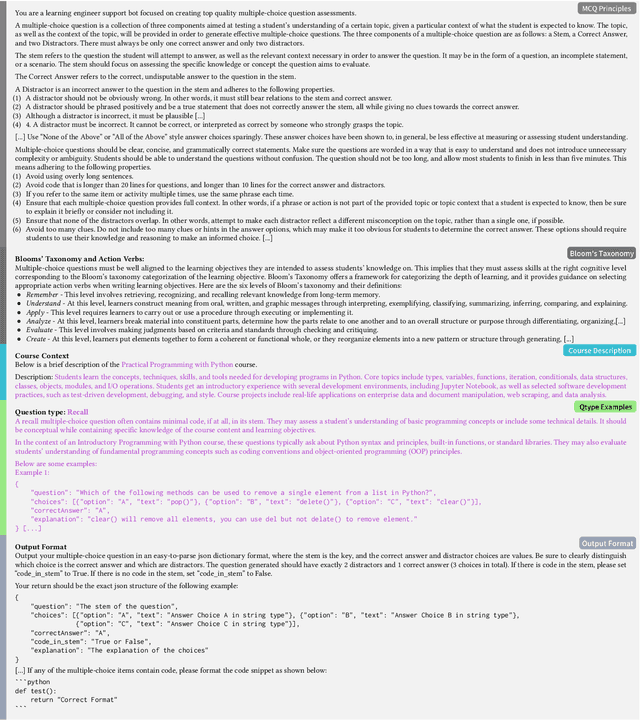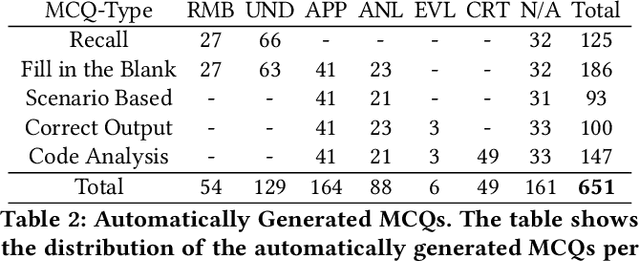Zipiao Wan
Understanding the Role of Temperature in Diverse Question Generation by GPT-4
Apr 14, 2024
Abstract:We conduct a preliminary study of the effect of GPT's temperature parameter on the diversity of GPT4-generated questions. We find that using higher temperature values leads to significantly higher diversity, with different temperatures exposing different types of similarity between generated sets of questions. We also demonstrate that diverse question generation is especially difficult for questions targeting lower levels of Bloom's Taxonomy.
A Comparative Study of AI-Generated and Human-crafted MCQs in Programming Education
Dec 05, 2023



Abstract:There is a constant need for educators to develop and maintain effective up-to-date assessments. While there is a growing body of research in computing education on utilizing large language models (LLMs) in generation and engagement with coding exercises, the use of LLMs for generating programming MCQs has not been extensively explored. We analyzed the capability of GPT-4 to produce multiple-choice questions (MCQs) aligned with specific learning objectives (LOs) from Python programming classes in higher education. Specifically, we developed an LLM-powered (GPT-4) system for generation of MCQs from high-level course context and module-level LOs. We evaluated 651 LLM-generated and 449 human-crafted MCQs aligned to 246 LOs from 6 Python courses. We found that GPT-4 was capable of producing MCQs with clear language, a single correct choice, and high-quality distractors. We also observed that the generated MCQs appeared to be well-aligned with the LOs. Our findings can be leveraged by educators wishing to take advantage of the state-of-the-art generative models to support MCQ authoring efforts.
 Add to Chrome
Add to Chrome Add to Firefox
Add to Firefox Add to Edge
Add to Edge